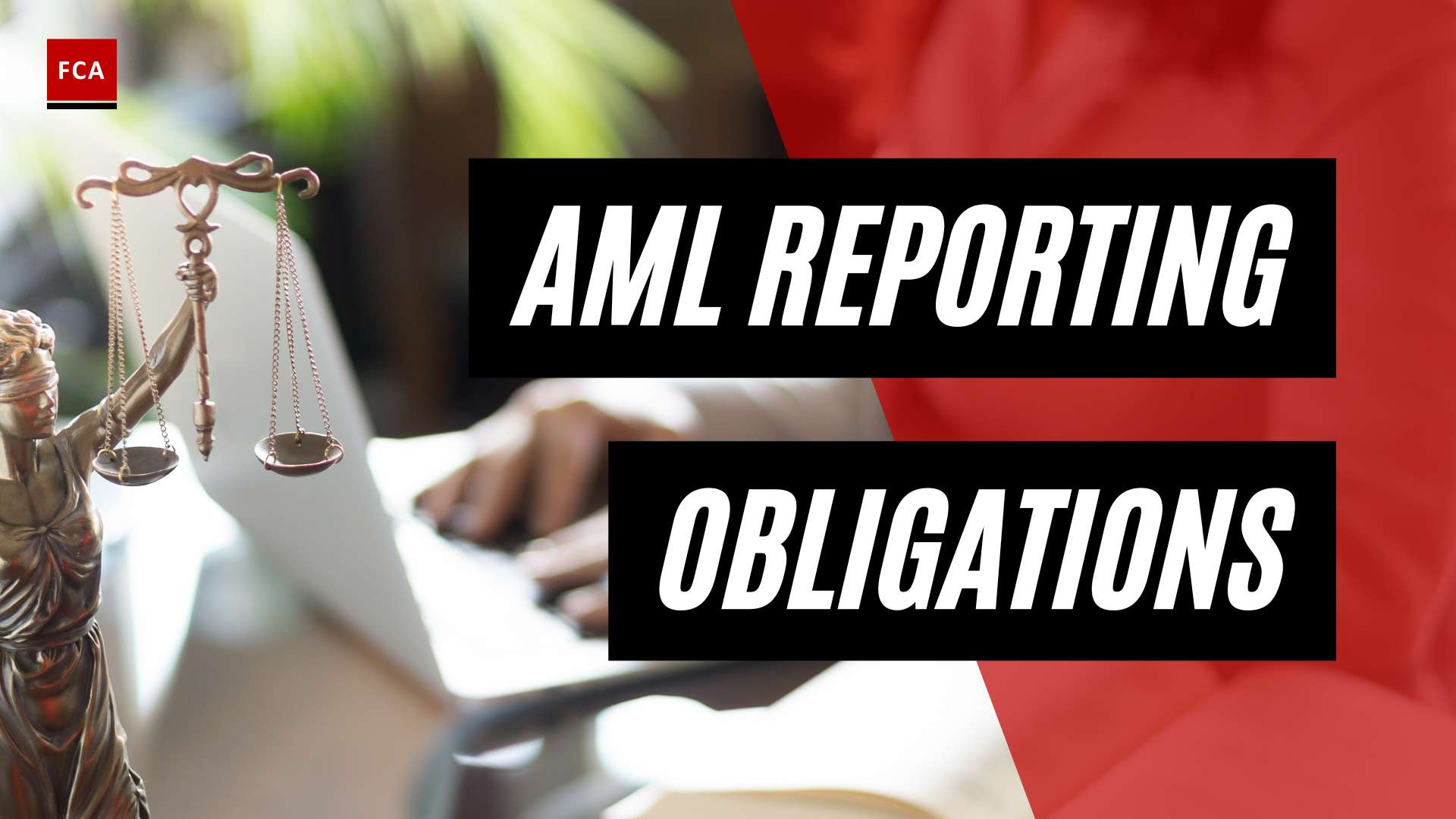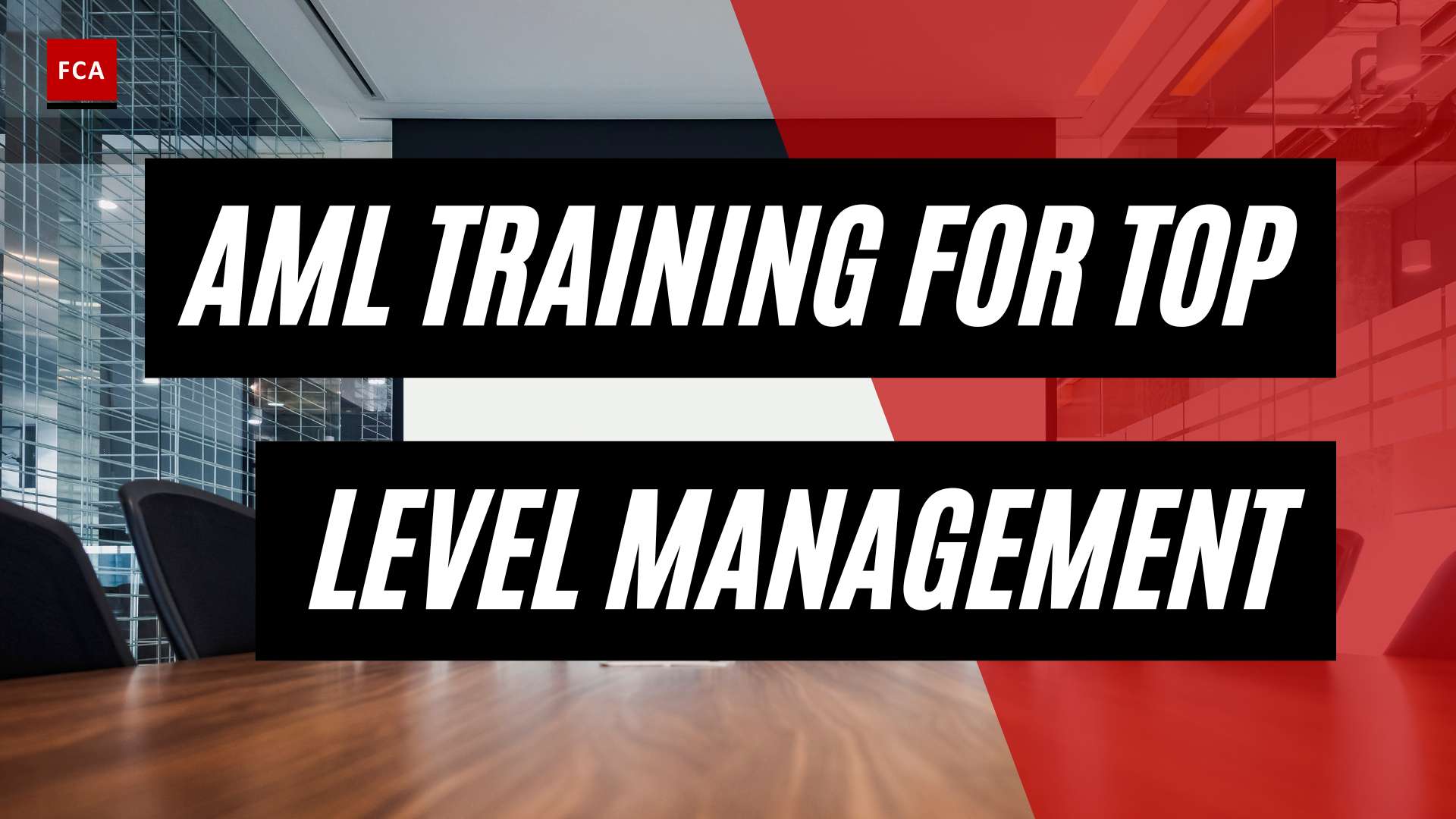Exploring AML Career Paths
When it comes to combating financial crimes and protecting organizations from money laundering and other illicit activities, AML analysts play a crucial role. These professionals examine customer transactions, identify suspicious activities, and ensure compliance with regulations. Let’s explore the career paths within the field of AML.
Introduction to AML Careers
AML (Anti-Money Laundering) careers encompass a range of roles dedicated to preventing financial crimes. These roles exist within various sectors, including banking, financial institutions, government agencies, and consulting firms. AML professionals work diligently to detect and deter money laundering, terrorist financing, and other illicit activities.
Within the realm of AML, one prominent career path is that of an AML analyst. These analysts are responsible for conducting due diligence investigations, transaction monitoring, and suspicious activity reporting to ensure adherence to AML regulations (Financial Crime Academy). They possess strong analytical skills, attention to detail, and a deep understanding of complex regulatory requirements.
Importance of AML Analysts
AML analysts play a critical role in protecting organizations from financial crimes. By examining customer transactions and data, they identify potential risks and suspicious activities, mitigating the threat of money laundering and terrorist financing. These professionals help organizations comply with AML regulations, preventing penalties and reputational damage.
The responsibilities of AML analysts include conducting thorough investigations, monitoring financial activities, and preparing suspicious activity reports (Sanction Scanner). They utilize their expertise to interpret complex regulatory requirements and ensure that organizations are compliant.
To excel in an AML analyst career, professionals must possess strong analytical and problem-solving skills. They must stay updated with evolving AML regulations and demonstrate a high level of integrity and ethical conduct.
Aspiring individuals interested in pursuing an AML analyst career can explore various opportunities within the field, such as AML investigator, AML officer, or even progress to roles like AML manager or compliance officer. The career progression within the AML field offers a path for continuous growth and development.
By choosing a career in AML analysis, individuals can contribute to the fight against financial crimes, protect organizations from illicit activities, and make a positive impact on the global financial system.
In the following sections, we will delve deeper into the roles and responsibilities of AML analysts, their career advancement opportunities, training and certification options, salary and job market trends, as well as the tools and technology they utilize to enhance their effectiveness in combating money laundering and related crimes.
Roles and Responsibilities of AML Analysts
AML analysts play a crucial role in the fight against money laundering, terrorist financing, and other financial crimes. They are responsible for examining customer transactions, identifying suspicious activities, and ensuring compliance with anti-money laundering (AML) regulations. Let’s explore the job description, required skills, and duties of AML analysts.
AML Analyst Job Description
The job of an AML analyst involves analyzing financial data to detect and prevent money laundering and other illicit activities. They work within financial institutions, regulatory agencies, or private firms, carrying out investigations and due diligence processes to ensure compliance with AML regulations.
The primary responsibilities of an AML analyst include:
- Conducting due diligence investigations: AML analysts perform thorough investigations on individuals and organizations to assess the risk of potential money laundering activities. This involves gathering and analyzing information from various sources, such as public records and internal databases.
- Transaction monitoring: AML analysts monitor customer transactions and account activities to identify patterns or anomalies that may indicate suspicious behavior. They utilize advanced software and tools to analyze large volumes of data and flag transactions that require further investigation.
- Suspicious activity reporting: When an AML analyst identifies transactions or activities that raise suspicions, they are responsible for preparing and filing Suspicious Activity Reports (SARs) with the appropriate regulatory authorities. These reports provide detailed information about the suspicious activities and help law enforcement agencies combat financial crimes.
- Compliance with AML regulations: AML analysts ensure that the organization they work for adheres to AML regulations and guidelines. They stay updated on the latest regulatory requirements and implement necessary measures to maintain compliance.
Skills and Qualifications for AML Analysts
To excel in the field of AML analysis, professionals need a combination of technical skills, analytical abilities, and knowledge of AML regulations. Key skills and qualifications for AML analysts include:
- Analytical skills: AML analysts must possess strong analytical skills to review complex financial data and identify suspicious patterns or activities. They should be able to apply critical thinking to interpret information effectively.
- Attention to detail: Given the intricate nature of financial transactions, AML analysts must have a keen eye for detail. They must be able to spot irregularities or inconsistencies in data that may indicate potential money laundering activities.
- Knowledge of AML regulations: AML analysts should have a comprehensive understanding of AML regulations and guidelines issued by regulatory authorities. This knowledge enables them to identify red flags and ensure compliance with legal requirements.
- Communication skills: Effective communication is essential for AML analysts to collaborate with colleagues, present findings, and document investigation reports. They must be able to communicate complex concepts clearly and concisely.
- Technology proficiency: AML analysts utilize various software tools and databases to analyze financial data. Proficiency in using AML software solutions and data analysis tools is crucial for efficient and accurate investigations.
Duties and Tasks of AML Analysts
The daily duties and tasks of AML analysts may vary depending on the organization and industry. However, common responsibilities include:
- Reviewing customer profiles and conducting risk assessments.
- Analyzing financial transactions and identifying potentially suspicious activities.
- Investigating alerts generated by transaction monitoring systems.
- Gathering and documenting evidence for suspicious activity reports.
- Collaborating with law enforcement agencies and regulatory authorities as required.
- Staying updated on changes in AML regulations and industry best practices.
By fulfilling their roles and responsibilities, AML analysts play a vital role in safeguarding financial institutions, businesses, and society at large from the risks associated with money laundering and financial crimes.
AML Analyst Career Advancement
For AML analysts looking to grow their careers, there are various advancement opportunities within the field. By expanding their knowledge and expertise, AML analysts can progress to more senior roles that involve greater responsibilities and leadership. Some common career advancement paths for AML analysts include the senior AML analyst role, AML manager role, and compliance officer role.
Advancement Opportunities for AML Analysts
AML analysts who demonstrate exceptional skills and a deep understanding of anti-money laundering regulations and processes can seize advancement opportunities within financial institutions. These opportunities allow them to take on more challenging assignments, lead projects, and contribute to the strategic decision-making process (Financial Crime Academy).
By continually expanding their knowledge and staying up-to-date with the latest industry trends and developments, AML analysts can position themselves for career growth. Pursuing additional certifications and specialized training in AML compliance and related fields can also enhance their career prospects (Indeed). This additional expertise can open doors to new opportunities in areas such as cryptocurrency AML, transaction monitoring, and regulatory compliance.
Senior AML Analyst Role
The senior AML analyst role is a step up from the entry-level position. In this role, experienced AML analysts take on more complex investigations and play a crucial role in the development and implementation of AML policies and procedures. They may also mentor and provide guidance to junior analysts, ensuring the overall effectiveness of the AML program within the organization.
To excel as a senior AML analyst, professionals must possess in-depth knowledge of AML regulations, advanced investigative skills, and the ability to analyze complex financial transactions. They should be adept at utilizing AML software and tools to identify potential money laundering activities and escalate suspicious cases for further investigation.
AML Manager Role
AML analysts who aspire to leadership positions can aim for the AML manager role. AML managers oversee a team of analysts and are responsible for managing the overall AML compliance program within an organization. They collaborate with various stakeholders, including senior management, to develop and implement AML policies, procedures, and controls.
In addition to their managerial responsibilities, AML managers stay updated with regulatory changes, conduct risk assessments, and ensure the organization’s compliance with AML regulations. They may also liaise with external auditors and regulatory bodies during compliance reviews and examinations.
To succeed as an AML manager, professionals must possess strong leadership and communication skills, as well as a deep understanding of AML regulations and best practices. They should also have the ability to manage and motivate a team of AML analysts, ensuring the efficient and effective operation of the AML compliance program.
Compliance Officer Role
Another career advancement option for AML analysts is transitioning into a compliance officer role. Compliance officers play a vital role in ensuring an organization’s adherence to AML regulations and implementing effective compliance programs. They work closely with various departments to identify and mitigate compliance risks, develop and deliver training programs, and monitor the effectiveness of the organization’s AML controls.
Compliance officers are responsible for staying updated with regulatory changes and ensuring that the organization’s policies and procedures align with the latest AML requirements. They may also liaise with external stakeholders, including regulators and auditors, to ensure compliance with AML regulations and address any compliance-related issues that arise.
To excel as a compliance officer, professionals must possess a strong understanding of AML regulations, excellent problem-solving skills, and the ability to communicate complex compliance concepts to different audiences. They should also have a keen eye for detail and a proactive approach to managing compliance risks.
By pursuing career advancement opportunities and continuously expanding their knowledge and expertise, AML analysts can take on more challenging and rewarding roles within the field. Whether they choose to become senior AML analysts, AML managers, or compliance officers, these career advancements allow professionals to make a significant impact in the fight against money laundering and contribute to the overall integrity of the financial system.
Training and Certification for AML Analysts
To excel in the field of Anti-Money Laundering (AML) as an analyst, it is essential to receive proper training and obtain relevant certifications. AML analysts play a crucial role in preventing money laundering and financial crimes, utilizing their expertise in finance, law, investigation, and technology to analyze and identify suspicious activities (Indeed).
Importance of Training in AML Compliance
Training in AML compliance is vital for AML analysts to stay updated with the latest money laundering methodologies, trends, typologies, and regulatory requirements. The field of AML is constantly evolving, and analysts are expected to keep pace with these changes. By receiving comprehensive training, analysts can enhance their knowledge and skills, enabling them to effectively detect and mitigate financial crimes.
AML Certification Programs
Obtaining certifications in AML can significantly enhance the career prospects of analysts. These certifications demonstrate their commitment to the field, increase their marketability to employers, and potentially lead to higher salary opportunities (Indeed). Some of the renowned AML certification programs include:
- Certified Anti-Money Laundering Professional : CAMP certification is widely recognized and highly valued in the AML industry. It validates the knowledge and skills necessary to detect and prevent money laundering activities. This certification covers various topics, including AML regulations, customer due diligence, risk assessment, and transaction monitoring.
These certifications highlight the expertise and professionalism of AML analysts, providing employers with confidence in their abilities to contribute effectively to anti-money laundering efforts.
By pursuing these certifications and staying up-to-date with industry trends and regulatory changes, AML analysts can enhance their credibility, expand their career opportunities, and make significant contributions to the fight against money laundering and financial crimes.
Salary and Job Market for AML Analysts
When considering a career as an AML Analyst, it’s important to understand the salary potential and job market outlook. AML Analysts play a critical role in combating money laundering and ensuring compliance with regulations. Let’s explore the average salary for AML Analysts, factors that influence their salaries, and the job market outlook for this profession.
Average Salary for AML Analysts
As of November 2021, the average annual pay for an AML Analyst in the United States is $65,633 per year (ZipRecruiter). It’s worth noting that the salary can vary based on factors such as experience, education, location, and industry specialization.
Here is a breakdown of the salary range for AML Analysts:
| Salary Percentile | Annual Salary |
|---|---|
| 10th Percentile | $46,500 |
| 25th Percentile | $53,500 |
| 50th Percentile (Median) | $63,000 |
| 75th Percentile | $76,500 |
| 90th Percentile | $94,000 |
Figures courtesy of ZipRecruiter
The top 10% of AML Analysts earn an annual salary of $94,000, while the bottom 10% earn $46,500 (ZipRecruiter). Keep in mind that these figures can vary based on factors such as experience, education, and the specific industry or company.
Factors Influencing AML Analyst Salaries
Several factors can influence the salaries of AML Analysts. Some of the key factors include:
- Experience: AML Analysts with more experience generally command higher salaries. As professionals gain expertise and demonstrate their ability to handle complex cases, their earning potential increases.
- Education: A bachelor’s degree is often a requirement for entry-level AML Analyst positions. AML Analysts with advanced degrees, such as a master’s or a specialized certification, may have a competitive advantage and potentially earn higher salaries.
- Location: Salaries can vary based on the cost of living in different regions. Major financial centers or metropolitan areas may offer higher salaries compared to smaller cities or rural areas.
- Industry: The industry in which an AML Analyst works can impact their salary. Finance, insurance, and professional companies are among the industries that typically pay higher salaries to AML Analysts.
Job Market Outlook for AML Analysts
The job market for AML Analysts is promising, driven by increased regulatory scrutiny and the need for organizations to combat money laundering. As financial crimes continue to evolve, the demand for skilled AML professionals remains high.
While specific job growth projections vary, the Bureau of Labor Statistics (BLS) reports that the broader category of financial examiners, which includes AML Analysts, is projected to grow 10% from 2019 to 2029. This growth is faster than the average for all occupations, indicating a positive job market outlook for AML professionals.
To increase your prospects in the job market, consider obtaining relevant certifications such as the Certified Anti-Money Laundering Professional (CAMP) This certifications demonstrate your expertise and commitment to the field, enhancing your competitiveness in the job market.
As organizations continue to prioritize AML compliance, the demand for skilled AML Analysts is expected to remain strong. By staying up-to-date with industry trends, expanding your knowledge and skills, and pursuing relevant certifications, you can position yourself for a successful and rewarding career as an AML Analyst.
Tools and Technology for AML Analysts
To effectively combat money laundering and ensure compliance with regulations, AML analysts rely on various tools and technologies. These tools assist in streamlining processes, enhancing efficiency, and optimizing AML analysis. In this section, we will explore the use of AML software solutions, the benefits they provide, the criteria for selecting the right software, and the role of technology in AML analysis.
AML Software Solutions
AML compliance software plays a crucial role in assisting organizations with verifying customers, flagging suspicious transactions and behavior, screening sanctions and PEP lists, and mitigating false positives. These software solutions automate and streamline compliance tasks more effectively and faster than manual processes, helping organizations comply with required AML regulations.
By leveraging AML software, analysts can optimize their operations and focus on critical tasks. These solutions encompass a range of tools, including identity verification, transaction monitoring, case management, sanctions and PEP screening, risk assessment and management, suspicious activity reporting, investigation optimization, and alert scoring. These tools are utilized by analysts, investigators, and managers to improve AML compliance operations (Unit21).
Benefits of AML Software
The use of AML software provides several benefits to AML analysts and organizations. Some of the key advantages include:
- Automation and Efficiency: AML software automates and streamlines mundane compliance tasks, enabling analysts to focus on higher-value activities and investigations. This leads to increased operational efficiency and productivity.
- Enhanced Compliance: AML software helps organizations comply with required AML regulations by providing robust tools for identity verification, transaction monitoring, and suspicious activity reporting. This ensures adherence to regulatory requirements and reduces the risk of non-compliance.
- Improved Risk Management: With advanced risk assessment and management features, AML software enables analysts to identify and assess potential risks more effectively. This allows organizations to implement appropriate risk mitigation strategies.
- Reduced False Positives: AML software solutions utilize advanced algorithms and machine learning capabilities to minimize false positives. By optimizing alert scoring and reducing false alerts, analysts can focus on genuine cases, saving time and resources.
Criteria for Selecting AML Software
When selecting AML software, organizations should consider several criteria to ensure they choose a solution that meets their specific needs. Key factors to evaluate include:
- User Interface: A user-friendly interface enhances usability and simplifies navigation, allowing analysts to efficiently utilize the software.
- Automation and Operational Efficiency: Look for software that offers automation capabilities, such as automated decision-making and case management. This streamlines processes and optimizes the resolution of suspicious activity cases.
- Easy Setup and Integration: The software should be easy to set up and integrate with existing systems, minimizing disruption and facilitating a smooth transition.
- Regions Covered: Check if the software supports the regions in which your organization operates. Comprehensive coverage ensures compliance with regulatory requirements across different jurisdictions.
- Vendor Support and Updates: Consider the level of support provided by the software vendor, including technical assistance and regular updates to address emerging AML challenges.
- Customer Service: Reliable customer service is essential for prompt issue resolution and ongoing support. Ensure the software vendor offers responsive customer service.
Role of Technology in AML Analysis
Technology plays a vital role in AML analysis, enabling analysts to leverage advanced tools and techniques for more accurate and efficient investigations. With the aid of AI-driven software and machine learning algorithms, AML analysts can enhance their detection capabilities and improve the effectiveness of their investigations.
Advanced technologies like AI-driven software can assist analysts in reducing their workload by automating repetitive tasks and providing intelligent insights. These technologies can analyze vast amounts of data, identify patterns, and detect anomalies that may indicate potential money laundering activities. By leveraging technology, AML analysts can enhance their effectiveness and contribute to more robust financial crime prevention efforts (Sanction Scanner).
In conclusion, AML software solutions play a crucial role in supporting AML analysts in their fight against money laundering. These tools automate compliance tasks, enhance efficiency, and provide crucial capabilities for identity verification, transaction monitoring, and suspicious activity reporting. By adhering to specific criteria when selecting AML software, organizations can ensure they choose a solution that meets their needs. Furthermore, the application of advanced technologies and machine learning algorithms empowers AML analysts to improve their detection capabilities and contribute to more effective AML analysis.
Staying Informed in the AML Field
To excel in an AML analyst career, staying informed about regulatory updates and industry developments is essential. This section highlights the importance of regulatory updates, provides resources for staying informed, and emphasizes the value of participating in public consultations.
Importance of Regulatory Updates
The field of anti-money laundering (AML) is constantly evolving, with regulatory frameworks and requirements being updated regularly. Staying informed with regulatory developments, trends, and new typologies for money laundering is crucial to ensure the efficiency of AML programs and controls in mitigating risks (LinkedIn). By keeping up-to-date with the latest regulations, AML analysts can adapt their strategies, systems, and processes to align with the current standards and effectively combat money laundering activities.
Resources for Staying Informed
Several resources are available to help AML professionals stay informed about regulatory updates and industry best practices. These resources include:
- Financial Action Task Force (FATF): As the global standard-setter for AML and counter-terrorism financing measures, FATF provides guidance, recommendations, and reports that help shape AML policies and practices worldwide.
- Financial Crimes Enforcement Network (FinCEN): As the primary regulatory authority in the United States, FinCEN offers guidance, advisories, and publications related to AML and suspicious activity reporting.
- European Banking Authority (EBA): EBA provides guidelines and technical standards to ensure the consistent implementation of AML requirements across European Union member states.
- IMOLIN by UNODC: The International Money Laundering Information Network, maintained by the United Nations Office on Drugs and Crime (UNODC), offers resources, publications, and training materials related to AML.
- National Regulators’ Websites: National AML regulators often publish updates, guidelines, and enforcement actions on their websites. These resources provide valuable insights into local AML requirements.
- National Financial Intelligence Unit (FIU) Websites: FIUs collect, analyze, and disseminate financial intelligence to combat money laundering and terrorist financing. Their websites may contain reports, typologies, and guidance for AML professionals.
- Public Consultations: Regulatory bodies often seek public input on proposed changes to AML regulations. Participating in public consultations allows AML professionals to provide feedback and stay informed about upcoming amendments.
By regularly accessing these resources, AML analysts can stay current with the latest regulatory requirements and industry trends, enabling them to make informed decisions and enhance their AML practices.
Participating in Public Consultations
A proactive approach to staying informed in the AML field involves actively participating in public consultations initiated by regulatory bodies. Public consultations provide an opportunity for AML professionals to contribute their expertise and provide feedback on proposed changes to AML regulations. By participating, AML analysts can stay informed about potential regulatory amendments and actively shape the future of AML practices (LinkedIn).
Participating in public consultations allows AML professionals to voice their opinions, share insights, and contribute to the development of effective AML frameworks. It fosters collaboration between regulators and industry practitioners, ensuring that regulations are practical, balanced, and address emerging challenges in the fight against money laundering.
In summary, staying informed in the AML field is crucial for AML analysts. By actively seeking regulatory updates, leveraging available resources, and participating in public consultations, AML professionals can enhance their knowledge, adapt their practices, and contribute to the ongoing fight against money laundering.
Exploring AML Career Paths
For individuals interested in a career in the field of Anti-Money Laundering (AML), becoming an AML analyst is a popular and rewarding choice. AML analysts play a crucial role in preventing financial crimes and protecting organizations from money laundering, terrorist financing, and other illicit activities. They examine customer transactions for suspicious activities and ensure compliance with regulations (SAS).
AML Analyst Job Description
AML analysts are responsible for conducting due diligence investigations, transaction monitoring, and suspicious activity reporting to ensure adherence to AML regulations. They possess strong analytical skills, attention to detail, and the ability to interpret complex regulatory requirements to identify potential financial crimes (Financial Crime Academy).
Key responsibilities of AML analysts include:
- Conducting investigations into suspicious financial activities
- Monitoring customer transactions and identifying potential money laundering or terrorist financing activities
- Analyzing data and documentation to identify patterns, trends, and anomalies
- Preparing reports and documentation for internal and external stakeholders
- Collaborating with law enforcement agencies, regulatory bodies, and other relevant parties
- Staying up to date with AML regulations and industry best practices
Skills and Qualifications for AML Analysts
To excel as an AML analyst, individuals need a combination of skills and qualifications. Some essential skills for AML analysts include:
- Strong analytical and problem-solving abilities
- Attention to detail and ability to notice patterns and anomalies
- Knowledge of AML regulations and compliance requirements
- Proficiency in using AML software and other relevant tools
- Excellent communication and report writing skills
- Ability to work well in a team and collaborate with various stakeholders
In terms of qualifications, many AML analyst positions require a bachelor’s degree in a related field such as finance, accounting, or criminal justice.
Duties and Tasks of AML Analysts
AML analysts perform various duties and tasks to fulfill their role in combating money laundering and financial crimes. These include:
- Conducting investigations into suspicious transactions and activities
- Identifying and analyzing patterns, trends, and anomalies in customer transactions
- Preparing and submitting suspicious activity reports (SARs) to regulatory authorities
- Assisting in the development and implementation of AML policies and procedures
- Collaborating with other departments, such as compliance and legal, to ensure adherence to AML regulations
- Staying informed about changes in AML regulations and industry trends
- Utilizing AML software solutions to streamline and enhance the effectiveness of AML processes
By embracing a career as an AML analyst, individuals can contribute to the fight against money laundering and protect organizations from financial crimes. The skills, qualifications, and experience gained as an AML analyst can also open doors to various advancement opportunities within the field, such as senior AML analyst roles, AML manager positions, and compliance officer positions.








